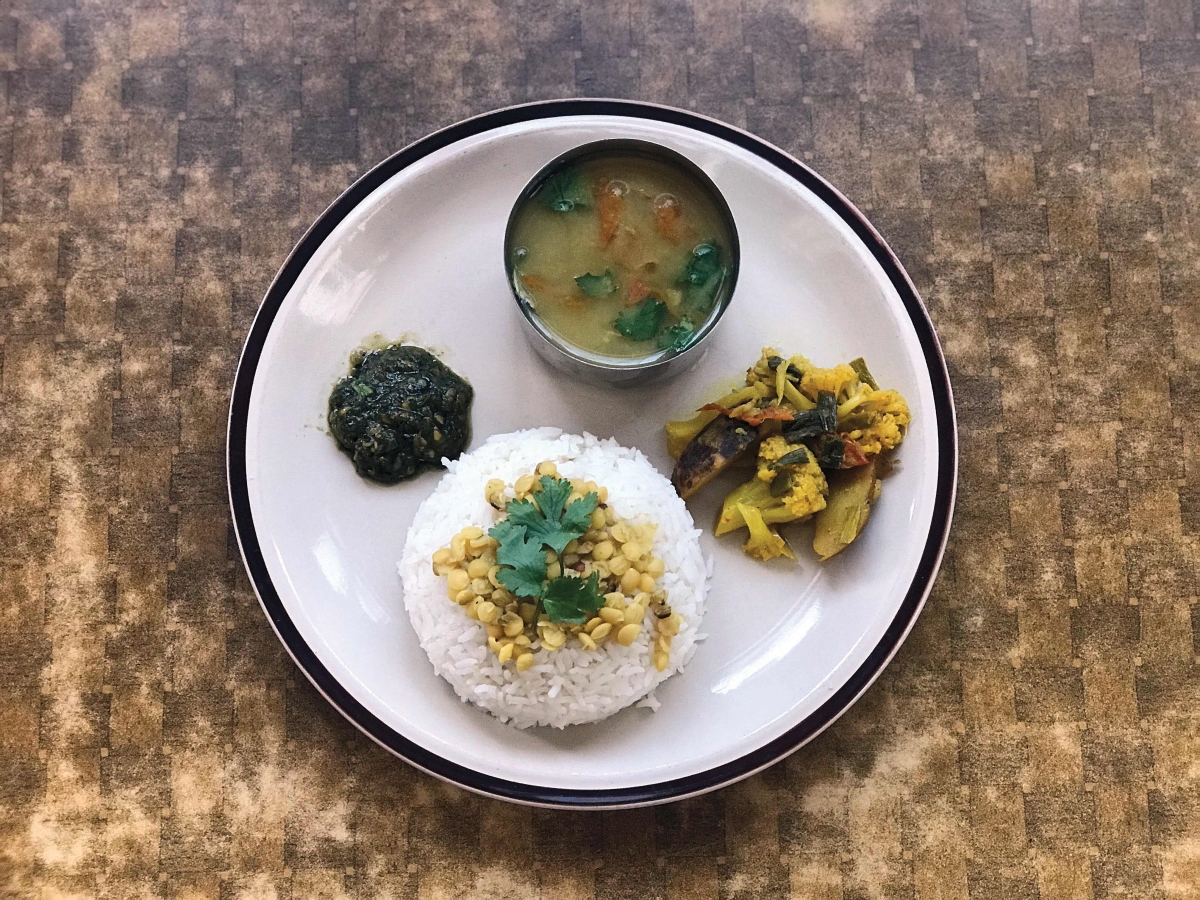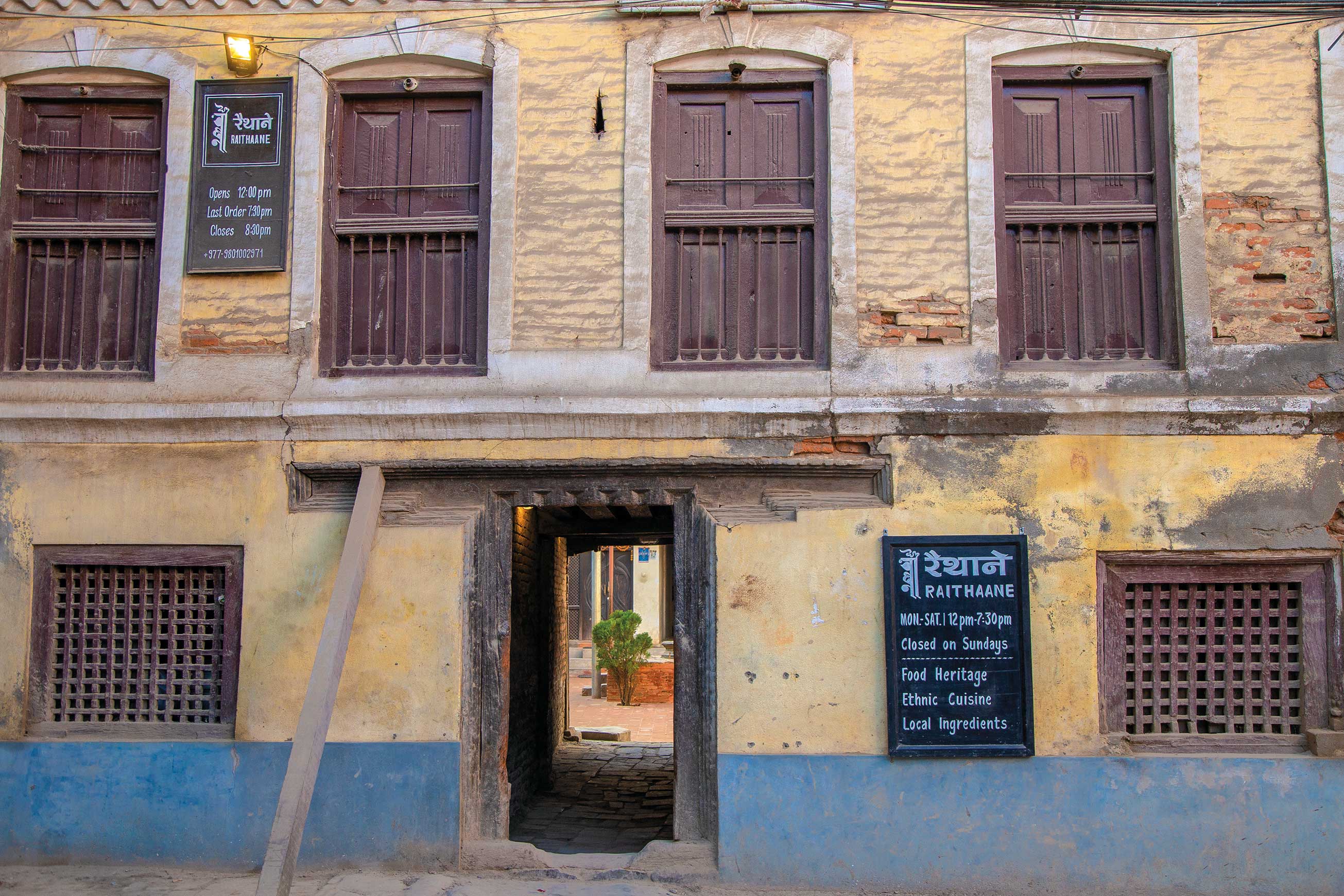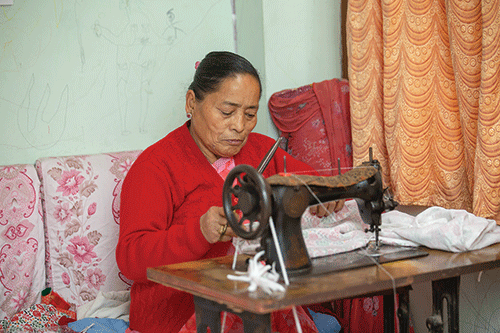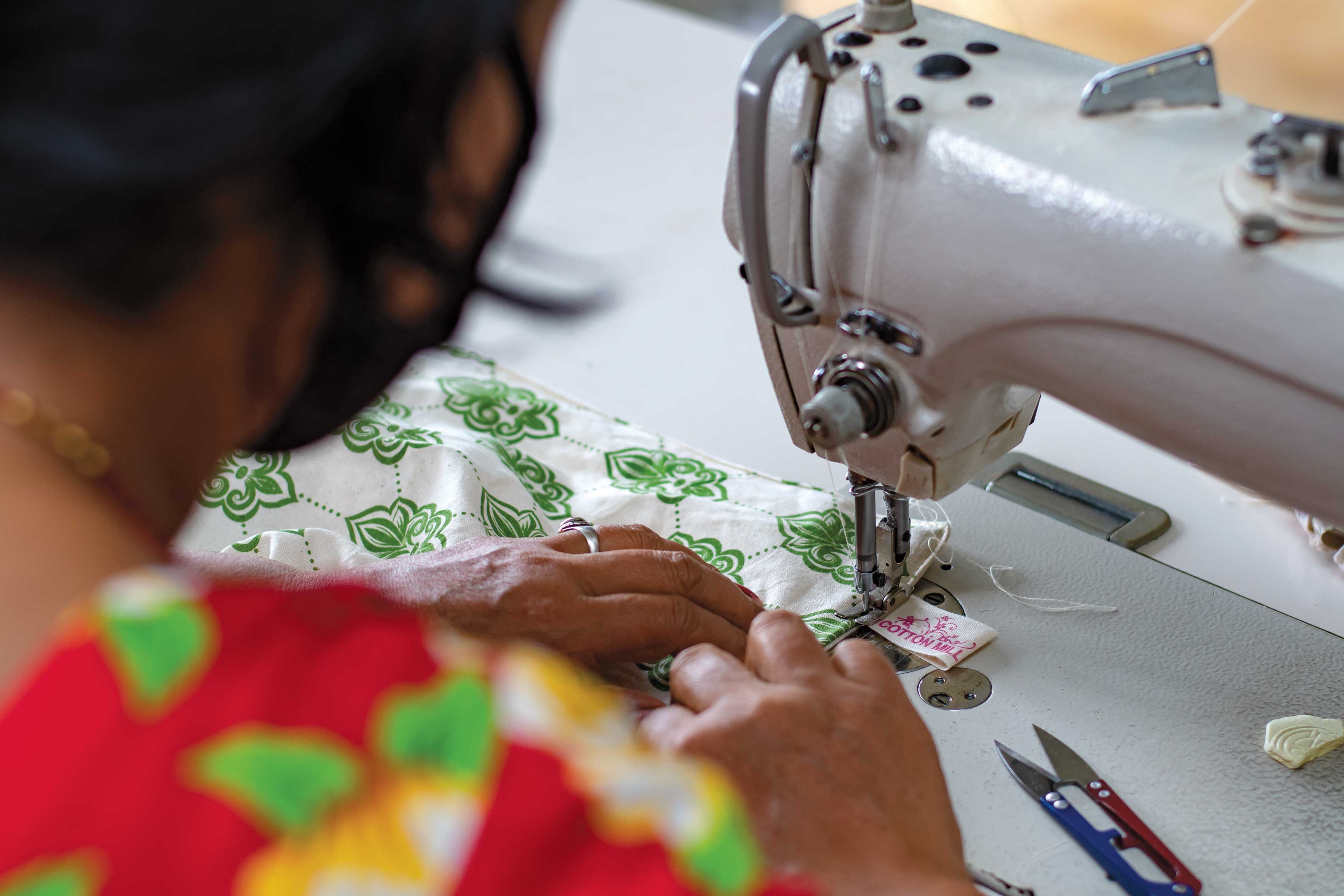My mother cheerfully jokes that the way to a man’s heart is through his belly. I remembered that as I was lunching last weekend on a fine, mouth-watering selection of French and Italian cheeses on Italian bread topped with bright leaves of basil. I had just brought it home fresh from shopping. Ah, the luxury of it―fine breads and cheeses, made by good people, and fresh herbs and organic vegetables, pastas and pastries, jams and juices, and more, all available in Kathmandu from smiling vendors at one of the city’s special weekly events: the Sunday Market at the Summit Hotel, Kupandol.
Food is one of the most important things in the world to me. Don’t get me wrong, I love dal bhat, the ubiquitous national meal of Nepal, along with most of the culinary delights that one finds throughout this land. But I come from Europe. I was raised on European food, sometimes I feel shadowy, dark undertones like an addict in withdrawal, going cold turkey if I don’t get my ‘hit’. I trained as a chef for five years, so I love food, all food; but good food above all, is most important!
And good food for fine cooking is available every Sunday at the Summit. There you’ll find many of Kathmandu’s expatriate community enjoying being tickled by these tasty delights.
They may not be fanatics like me, but I enjoyed watching just how much cheese some people will buy from Sandro Serafini (Italy) and Francoise Driard (France). The quantity of bread baskets sold by Barat Kafle (Nepal), and fresh organic vegetables, herbs and salad fixings sold by Bishnu Batas (Nepal) was astounding.
Kafle summed up the benefits of the market, saying, “I have never had to pay for advertising for my bakery.” Bishnu Batas had much the same to say. They have both been selling here since the market started over 17 years ago.
The Root Of It All
In the West, especially in Europe, the concept of the weekend market; on Saturday or Sunday, is not just a place to shop for tasty and wholesome foods—it is also a social event. If you look around on Sunday at the Summit, you’ll see people greeting their friends and enjoying a chat over fresh coffee and sweets.
Supermarkets have distorted the ethics of good food. Daily life and the need for ‘convenience’ is taking priority, as we rush head-first from board meetings to working deadlines. It has taken its toll on quality produce for home and quality time with friends. Quick and easy oven meals are winning out. But weekend markets provide an alternative for those who wish to know and share the source of good food, to gauge its true quality and value, and support those who are providing an alternative to what many see as the lean, mean, pre-packaged, commercial food machine. The organic produce of the Sunday market is especially important, considering the growing awareness worldwide about the use of chemicals in commercial farming. And, just as importantly, the market is a platform for likeminded people to come together to share their knowledge and love of good food.
The vendors at the Summit’s Sunday Market also know the necessity for both quality and affordability. Take mozzarella cheese for example. You can go to a Kathmandu supermarket, and buy processed mozzarella for four to five rupees, but remember that word ‘processed’. Sandro will sell you fresh mozzarella that he has made, that is local and for a better price. It is made buy a real Italian who has grown up either eating or making cheese. And his profits remain in the local economy. If you ask, he’ll invite you to visit his farm so you can see for yourself. Now tell me, what big multi-national company will do that?
The Center Of It All
The Summit Hotel at Kupandol Heights is an idyllic settings; the Himals dominate the sky as you gaze across the city. The garden where the market is held reminds you of a place far away. There’s something delightfully British colonial about it. Jungle foliage abounds, and red-bricked buildings help in distorting the time line. The permanent gazebo in which Bishnu Batas sells his vegetables and Bina Amatya sells her fruit jams, near poolside, all makes one feel as if to expect servants in white livery to appear with cool Gin n’ Tonics.
The rustic, wooden, swinging half doors of the pool’s changing rooms makes one feel as if a group of young, rowdy English school boys will burst out any moment—knocking over the waitress (who serves visitors the market coffees for 15 rupees, and fresh pastries; try the custard) as they cannonball toward the pool. If you are wondering, patrons to the market can also use the pool and recliners, popular in the warm season. And, servants with G n’ T’s? Well, one can dream.
What To Do With It All
I usually start off at Kafle’s bread stall, where the line forms quickly. He sells a multitude of other things, including fresh ravioli pasta for either vegetarian or non-veg tastes. Twenty good size pieces for 120 rupees, more than enough for lunch along with some of his garlic bread with fresh butter available from Sandro, who also sells fine mozzarella. From Batas in the gazebo you can buy fresh spring onions, and basil, and salad fixings, and sometimes farm, fresh eggs. Then, when you get home, wash the basil and spring onions and chop the basil roughly and the spring onions finely and fry them in oil until lightly browned. Add a half cup of tomato paste, and some tinned tomatoes (or fresh, if you prefer), turn down the heat and leave it to simmer for about ten minutes. Season it with salt and pepper, and if too acidy with the tomatoes add a little sugar. Trust your tastes.
Meanwhile, put heat a pan of water and as it starts coming to a boil, add a little salt and oil and the ravioli, stirring once or twice gently to make sure they don’t stick together. Be warned: it cooks fast. Check regularly after 5 minutes. When just about done, add the basil and spring onions to your tomato sauce, strain your ravioli, now put it into a bowl and pour the sauce over it. Top it off with cheese and―wallah!, a meal fit for royalty. Feel free to vary the cheese using the scamorza instead; and Francois’s mature cheese also goes quite well. You can add mushrooms to the sauce, too, if you like, or tuna, or whatever takes your fancy.
With the variety of sausages, good breads, cheeses, butter and salads available in Kathmandu, Continental style sandwiches are also easy to make as well as being wholesome. Again Francois’s cheese is perfect for this, along with the dried sausages. Another option that I like is a rustic burger and chips. Buy buns from Kafle’s stall at the Sunday Market, then some wild boar meat burgers from Sandro. They cost between two and three hundred rupees for two pieces. Pick up some mature cheese from Francois, or mozzarella if you prefer, and lettuce and potatoes from Batas. At home, wash and cook the whole potatoes a little, then chop into segments and deep fry (French fry style, but I like ’em with the skins on), lightly grill the buns then fry the burgers in a little oil, with salt and pepper on top, and while that’s cooking wash the lettuce, set out some ketchup and mayonnaise, dress the buns with your favorite salad greens, sauces and cheese of choice, and―take a deep breath―when the burgers are cooked pop them on the buns. The only thing left are the potatoes, which should be done by now. Salt them lightly salt and then to the plate. Wallah!―rustic burger and chips. Something for the kids, and the kid in you, both young and old.
These are just a few simple meals that can be done with ingredients easily gathered in ten minutes at the Sunday Market. And they don’t take long to cook at home. Go have a look, and plan your menu.
An Endangered Wealth
Weekend markets, here and around the world, have another motive. The methods used to make traditional breads, cheeses, and meat products, and the taste of organic foods, are quickly disappearing. Factories are replacing farmers. Recipes are being mass-produced. Pre-packaging distorts good taste with questionable preservatives. Meanwhile, the folks who sell traditional market produce are keeping a wealth of knowledge alive and well. Where will the term “good food” stand in ten years time? Nepal’s Sunday Marketeers are proud that in some way they are preserving traditional food making knowledge for future generations. Even now, Sandro’s seven year old daughter is learning how to make cheese.
If you cannot make it to the market on the Sunday, it also runs on Wednesdays is another day to catch the action, though the spread may a little more limited.
Happy shopping and gourmet eating.
The Sunday and Wednesday Market at the Summit Hotel opens around 9:30 or 10 a.m., and runs up to noon.
Pat Kauba is a freelance writer and photographer, who is also a fanatic about food. He can be contacted at patkauba@gmail.com.











